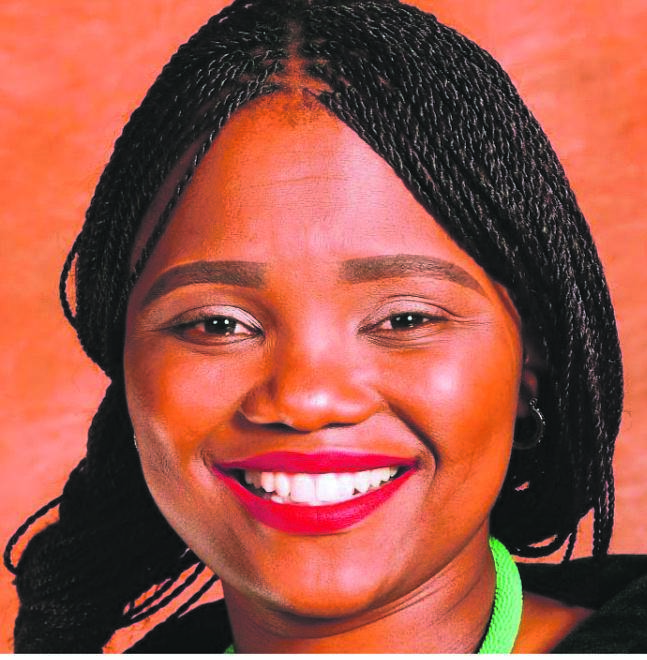
A golden bowl is broken. Over the uMngeni and Umfolozi, crisscrossing the Senqu and uTugela rivers and the many streams and rivulets of our beautiful land, on September 13 the spirit of a saintly soul would leave us.
Bavelile Hlongwa joined our movement when she was 14, drawn by the plight of her people, buoyed by her convictions to overcome the hurdles of her own life and to transform the lives of the young, the women, the disabled and the marginalised.
Hlongwa sought to make a difference to a land ravaged by squalor and indignity; a land pulsating with aspiration in the many possible opportunities and yet burdened with hope of an ancestral dream yet to be realised.
She reminded us at numerous meetings, that change comes with discomfort, as well as excitement. She placed upon those of us accorded the responsibility and mandate to realise change, to collaborate and work together.
As she would say: “The officials should understand that they are not in competition. It is important to recognise that one is not better than the other. What is expected is for individual officials to work with one another, with the intention of advancing the work of the state. Be nice to one another; be decent and professional.”
For some, these words are old and meaningless. For others, perhaps, they are an inspiration. For those in congress they are a reminder of the history, legacy and heritage of our movement. A recollection of who we are and why we should not forget the course we have embarked on. As one of our forebears, Pixley ka Isaka Seme, said in 1911: “There is today among all races and men a general desire for progress, and for cooperation, because cooperation will facilitate and secure progress. I repeat, cooperation is the key and the watchword which opens the door leading to progress and all national success. The greatest success shall come when men shall have learnt to cooperate, not only with his own kin but with all peoples and with all life.”
Here we are now, bewildered, attempting to accept how it could be that one so young and so promising has left us.
Her Christian faith would have taught her to remain focused on that which was paramount. She taught us that there was no harm in seeing the beauty and excellence in others. She was comfortable in her skin. She knew she could complement instead of having to compete against others, including her superiors.
Lest we considered her timid, she fought for her ideas and what she believed in. She would shamelessly – and fiercely – make her point. Characteristically, she would consistently interrupt if she thought she had to do so. She would gracefully state: “Ngikuhlal’ emadevini.” This is a phrase those who worked closely with her in the past three months knew so well. Each knew her interventions were for the youth, for women, for the disabled and for the marginalised.
Yet, if you spoke to her and interrupted her she would calmly enunciate: “Anginamadevu mina, uzoshibilika.”
So it is in that siyashibilika that we try to fathom the brilliance contained in her. Even at this late hour, as we seek to transcend and transpose the being that she is, siyashibilika.
It has come to be, that in her and our attempt to comprehend these intricacies and contradictions of being, she lost her precious and promising life while trying to intervene – as always, for the destitute and those in need. She died in the service of others; like a good soldier, she died with her boots on.
We appreciate and comprehend how painful it might be. But in these plains and valleys of our birth; upon the hills and mountains; even in the discontent and peril of our townships, the rains are followed by sunshine. The Basotho say it is bojabotsea – eat and laugh simultaneously. Joy and pain. Nevertheless, the glimmer of the moon will not be dimmed by the cover of the clouds.
Comrade BV: If the gods of your people demanded of us to speak of you;
If your feisty spirit of youth compelled us to recall Onkgopotse Tiro, Solomon Mahlangu Bachana and many others;
If it might be that you will want us to sing the song of Ousmane Sembène’s women as our forebears in 1913 and 1950; and
If your people and your land beckon upon us to howl in the gorges, streams and rivers, where your spirit floats;
Your everlasting smile and laugher will prod and propel these freedoms for which we must fight until we gain our liberty and will have won.
We miss you.
We will miss you.
We wish not to surrender ourselves to being morbid in our loss.
We embrace the victory that is in our grasp; the life you gave to our living and, henceforth, proclaiming for all the hills and hillocks of our land to hear.
Gwede Mantashe is minister of mineral and energy resources




 Publications
Publications
 Partners
Partners








